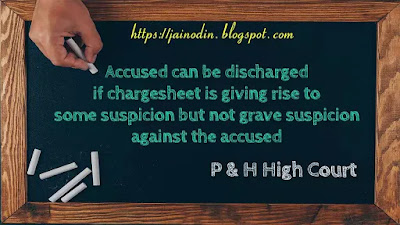(2) Where the materials placed before the Court disclose grave suspicion against the accused which has not been properly explained, the Court will be fully justified in framing a charge and proceed with the trial.
(3) The test to determine a prima facie case would naturally depend upon the facts of each case and it is difficult to lay down a rule of universal application. By and large however if two views are equally possible and the Court is satisfied that the evidence produced before the Court while giving rise to some suspicion but not grave suspicion against the accused, he will be fully within his right to discharge the accused.
(4) That in exercise of jurisdiction, the Court cannot act merely as a Post-Office or a mouth-piece of the prosecution, but has to consider the broad probabilities of the case, the total effect of the evidence and the documents produced before the Court, any basic infirmities appearing in the case and so on. This however does not mean that the Court should make a roving enquiry into the pros and cons of the matter and weigh the evidence as if he was conducting a trial.[Para No.21]
Punjab & Haryana High Court
Karamjit Singh BhullarS
Vs.
State Of Punjab

